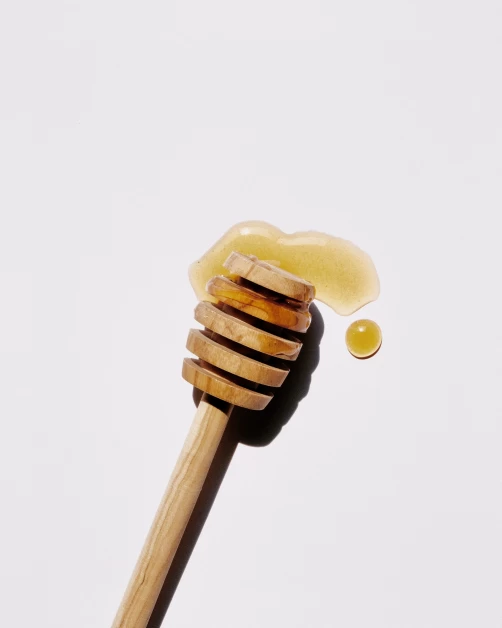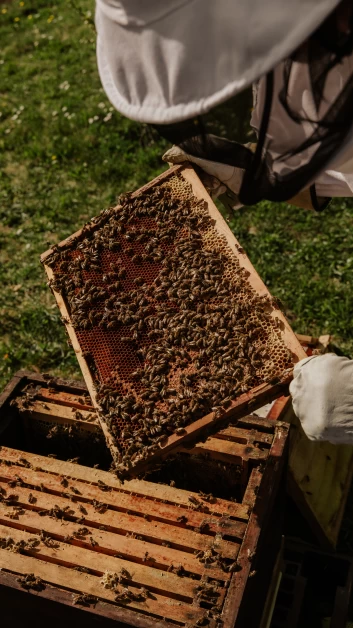Table of Contents
- Introduction
- What is Manuka Honey?
- Honey vs. Manuka Honey
- Manuka Honey for Wound and Burn Healing
- Treating Antibiotic-Resistant Infections with Manuka Honey
- Anti-inflammatory Benefits of Manuka Honey
- Alleviating Cold Symptoms with Manuka Honey
- Oral Health Benefits of Manuka Honey
- Manuka Honey for Skin Disorders
Introduction
Long recognized as one of nature’s wonders, honey has been used medicinally for centuries, particularly for treating wounds and infections. Today, honey is still used in many cultures as a natural remedy for a wide variety of skin conditions and physical ailments, and its many health benefits continue to be explored and studied by modern science.
Manuka honey, in particular, has gained attention for its unique health-promoting compounds. It has been praised for its ability to improve wound healing, prevent tooth decay, soothe sore throats, and promote digestive health. But with the high price tag of manuka honey, you may be wondering how it differs from your local honey. In this comprehensive guide, we will dive into the world of manuka honey to see if it’s worth the hype, especially in terms of stress relief.
What is Manuka Honey?
Manuka honey is a unique type of honey that is native to New Zealand and parts of Australia. It is produced by bees that pollinate the flowers of the manuka bush, also known as the tea tree. Manuka honey is known for its distinct flavor and its medicinal properties. It has gained popularity in recent years due to its numerous health benefits, particularly its potent antimicrobial properties. These medicinal properties are believed to be attributed to its high concentration of methylglyoxal (MGO), a compound found in high levels in manuka flowers.
Honey vs. Manuka Honey
The term “honey” refers to a sweetener produced by bees, whether it is pure honey (filtered from the hive), raw honey (unfiltered), or manuka honey. All types of honey have similar nutritional profiles in terms of calories, carbohydrates, protein, and fat content. The difference lies in the source of nectar used by bees to make honey.
Manuka honey is rarer and more expensive than regular honey due to its limited supply. The manuka tree can only thrive in specific climates in certain parts of the world, mainly remote regions in New Zealand. Additionally, the manuka tree only flowers for a short period, typically two to six weeks a year, making it a narrow window for bees to pollinate.
While all honey has components that protect our cells from bacteria, what sets manuka honey apart is its high concentration of active compounds, particularly methylglyoxal (MGO). MGO has been shown to have antibacterial and anti-inflammatory effects, making it beneficial for various health conditions, including wound healing, pain relief, and reducing inflammation.
Manuka honey also contains other unique compounds, such as leptosperin, that are not found in regular honey. These compounds have antioxidant and anti-inflammatory properties, which can help reduce inflammation, boost the immune system, and protect against chronic diseases.
Manuka Honey for Wound and Burn Healing
Manuka honey is best known for its healing properties. When applied to a wound, it can support the healing process and reduce pain, making it a natural alternative to traditional wound dressings. Its antibacterial and anti-inflammatory properties combat pathogens, provide a protective barrier, and reduce inflammation. It also stimulates the growth of new tissue and blood vessels, accelerating the healing process.
Multiple scientific studies have confirmed the efficacy of medical-grade manuka honey in treating wounds, burns, and sores. In a recent randomized controlled trial involving critically ill children with pressure injuries, honey dressings decreased the time to wound healing. Another study in diabetic patients with foot ulcers found that manuka honey dressings shortened healing time and led to faster disinfection of wounds compared to conventional dressings.
Treating Antibiotic-Resistant Infections with Manuka Honey
Antibiotic resistance is a global issue, with drug-resistant bacteria causing life-threatening complications in wound infections. Research has shown that manuka honey may be effective against antibiotic-resistant bacterial infections, such as methicillin-resistant Staphylococcus aureus (MRSA).
A recent study demonstrated that concentrations of 10-30% honey inhibited the growth of highly antibiotic-resistant organisms. These findings indicate the potential of manuka honey as a natural alternative to antibiotics.
Anti-inflammatory Benefits of Manuka Honey
Chronic inflammation plays a significant role in the development and progression of many chronic diseases. The flavonoid and polyphenol compounds in honey have anti-inflammatory and antioxidant properties that help reduce inflammation, fight allergies, and combat oxidative stress.
In addition to reducing inflammation in wounds, manuka honey has been shown to reduce inflammation in the gut, which may alleviate symptoms of inflammatory bowel disease. Its anti-inflammatory effects may also be beneficial for reducing inflammation associated with other chronic conditions, such as arthritis and cardiovascular disease. However, more research is needed in these areas.
While standard medications used to treat inflammation can have serious adverse effects, honey shows promise as a natural, well-tolerated alternative with minimal side effects.
Alleviating Cold Symptoms with Manuka Honey
Using honey to soothe a sore throat or cough is a time-honored remedy. Honey alone may be an effective way to suppress a cough and relieve symptoms of upper respiratory tract infections (URIs) or the common cold. Studies suggest that honey may be a safe and effective treatment for coughs due to URIs, providing symptomatic relief. This is especially useful as most URIs are caused by viruses, rendering antibiotics ineffective.
In children, cold medication options are limited, making honey particularly suited for symptomatic relief. Research has also shown that honey can reduce nighttime coughing and improve sleep in children. The American Academy of Pediatrics (AAP) supports the use of small amounts of honey as a home remedy for coughing in children over 1 year old to help thin mucus and loosen a cough.
Oral Health Benefits of Manuka Honey
Contrary to popular belief, consuming manuka honey can actually promote good oral health. Its potent antibacterial properties have been shown to inhibit the growth of harmful oral bacteria, which contribute to plaque formation, gum inflammation, gingivitis, and tooth decay.
In a clinical study, manuka honey and chlorhexidine mouthwash were found to significantly reduce plaque formation better than xylitol gum.
Manuka Honey for Skin Disorders
Manuka honey shows promising potential as a complementary therapy for various skin disorders, including rosacea, acne, and dermatitis. Its anti-inflammatory properties can help reduce inflammation and redness in the skin. Additionally, it inhibits the growth of bacteria that contribute to dermatologic conditions. Manuka honey also promotes wound healing and tissue repair, which can benefit individuals with damaged or compromised skin barriers.
In conclusion, manuka honey has a wide range of health benefits, including stress relief. Its unique compounds, such as methylglyoxal (MGO) and leptosperin, contribute to its potent antimicrobial, anti-inflammatory, and antioxidant properties. Whether used for wound healing, treating antibiotic-resistant infections, reducing inflammation, alleviating cold symptoms, promoting oral health, or improving skin disorders, manuka honey has shown promising results in scientific studies. So, if you’re looking for a natural remedy with multiple health benefits, manuka honey may be worth the investment.
Sources:
– https://aboutmanukahoney.com


